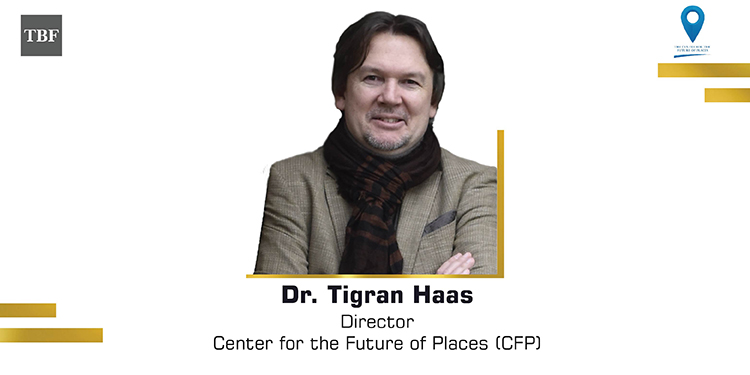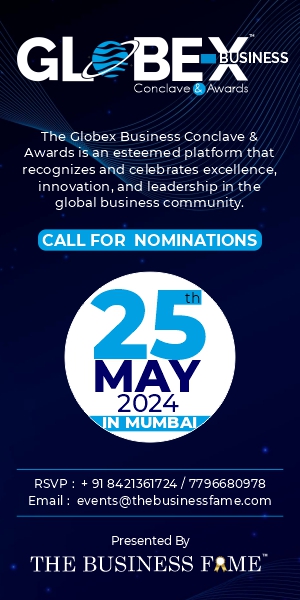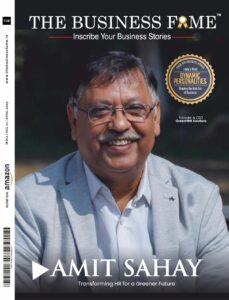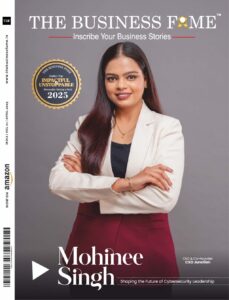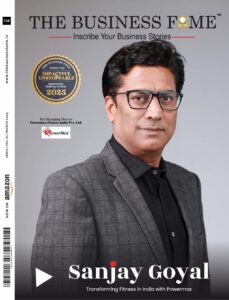In architecture and urbanism, it has become the need for the students to learn in a research-based environment, the one that will enable better learning and bring about dedicated professionals in the industry. Research is nothing but studying the subject in the most cognitive way. With a more focus and analysis of a subject, it is imperative that the student will get a value-based education. Featuring in The Business Fame’s this issue of “The Most Renowned Technical Research Centre in Universities in 2021″ is KTH and its Centre CFP Centre for the Future of Places, a school that builds futures in the most cognitive way of learning.
The Institute and research centre-
“We educate and research about the society of the future.”
CFP was set up with a mission that aside from becoming an International Hub for Research on Public Space & Beyond and doing studies on the subject from a global perspective, it also becomes a clearinghouse for ideas and new proposals on how the cities should be planned, designed, and retrofitted best to meet both todays and tomorrow’s challenges with the focus on public places and urban spaces. The center envisions a networked community of leaders actively working across sectors, frontiers, and disciplines to build a more just, sustainable, and prosperous world. The most important things are the highest quality outputs in research, publications, media events and societal relevance as well as links to higher, graduate and post graduate education. The pillars that the host institution of KTH has, those of sustainability, equality and internationalization are deeply embedded into the fabric of the everyday ad strategic activities of the Centre.
Challenges that Laid the Foundation of Success-
One of the hurdles is surely the environment one is at, the micro, meso and macro. Micro being the immediate one with all the challenges of competences, staff, tasks, immediate decisions, administration and leadership as well as conflicts; the meso being the plane of projects and partnerships and cases on the ground and the cities where the work is being done but also the products, the media, networks etc. and finally the macro with all the challenges and competition and major issues on the regional national and global level that influence the work and strategy of the place where one works.
Roadblocks will be many from personal choices, communication, decisions and project and program work that brings many knowables but also many unknowables. The key thing is a tight organization with good leadership and delegation of responsibilities where the chemistry functions and all are onboard towards a common goal and where mutual benefit must prevail, nit individual gain and vanity.
Platform for Research-
The breadth of KTH’s research requires variation in focus, approach and formation. We strive to create an open atmosphere and break down traditional barriers between subject disciplines. Basic and applied research are conducted in parallel, and the same applies to multidisciplinary and subject-oriented research. Based on the research we are extra strong in, KTH has designed focus areas which function as platforms for interdisciplinary research.
KTH is Sweden’s largest technical university and internationally prominent in its research areas. The faculty and researchers from all over the world gather here. The activities are divided into five schools that conduct research in each of the broad subject areas.
KTH’s schools contain research that spans a wide area, from science to all branches of technology, architecture, industrial economics, community planning, technical history and philosophy. These are:
- Architecture and the built environment
- Electrical engineering and computer science
- Industrial technology and management
- Chemistry, biotechnology and health
- Engineering science
KTH’s Notable Achievements-
- KTH is ranked as one of Europe’s best technical universities and as one of the 100 best in the world (QS). KTH places the top 50 in eight subjects according to QS and six according to ARWU.
- KTH has 29 departments spread over five schools. Each department conducts research in its specific field, often with the help of lab environments and technology that maintains a high international standard.
- At KTH’s competence center, research is carried out on new subject areas, often in collaboration with society, business and other universities.
- At KTH there are approximately 300 professors, 300 senior lecturers and 1800 doctoral students.
Dr. Tigran Haas, Director of CFP, A visionary CEO- Leading the Way-
Tigran Haas has studied architecture and urbanism in the USA, Former Yugoslavia and Croatia, as well as Sweden. He has also done Post-Doc Fellowships in urbanism, sustainable planning information technology and urban form at MIT – Massachusetts Institute of Technology, Boston, UC Berkeley and University of Michigan, Ann Arbor; a guest professor at the Zagreb School of Economics and Management (ZSEM). H holds advanced degrees in Architecture, Urban Planning and Urban Design, Environmental Science and Regional Science and Planning. And has also written over 85 scholarly articles, 40 Conference Papers, 10 books, 4 Research Anthologies, and have been involved in designing of -and teaching in International educational programs such as: Real Estate Management, Environmental Engineering and Sustainable Infrastructure, Spatial Planning, Strategic Management, Urban Planning and Design and Sustainable Urban Planning & Design and Advanced Master’s Program in Urbanism Studies. From the path of master’s supervisor, PhD Supervisor, Lab Director, Chair of Research Program, Graduate Education Director, PhD Director, Tenure Track from Post-Doc to Associate Professor and Finally Director of the Research Centre and new Lab Director, gave her insight to what it means to learn tricks of the trade that is elements of becoming a proficient leader.
“I am the “5Ps”: Passion, Perseverance, Professionalism, Persuasion and Playfulness”
Tigran likes to take on the challenges every now and then; likewise, he is currently handling four jobs at once. Directing a Centre, working for the Digital Futures, Working as a Researcher and Teacher in the Tenure Track Position of Associate Professor of Urban Planning & Urban Design, and Mentor as well as a new Lab Director. However, it’s also true that he likes and thrives in multitasking and he also brings elements of improvisation, fast decisions and innovation into it.
“The fact that I was teaching 8 years project and strategic management and leadership has helped me quite a lot”
But also, to have a few stellar mentors throughout the academic career is also imperative to be a better leader, mentors like his late father professor in theoretical physics and philosophy of science and great individuals in my own urbanism profession like Richard Florida, Emily Talen, Julian Agyeman, Edward Glaeser and Saskia Sassen. Dr. Haas likes constant challenges, ideas coming through, inspiring colleagues and curious students, transforming cities and people as well as urban places and public realms with all their complexity.
KTH- The Road Ahead-
It is truly difficult to foresee the future as Tigran Haas is not a precognitive from the Minority Report but that not with-standing a good leader and CEO needs to see what the future can and will bring and take risks as the greater the risk the bigger the rewards are. This is why he is very much confident about the post-position of my center i.e., the new lab. He perceives the future of this organization with future key projects and key pertinent themes for the thriving and survival of cities.
Dr. Tigran Haas strongly believes in creating new paths but also staying at the present paved road; being very much confident that the organization will be fully ready to deal with the critical issues and harder projects that will come along, including the post COVID-19 era. This is the way to upgrade the whole system.
“I am very much confident about my networks, affiliates and former researchers who have already made a huge contribution to the success of the center in producing different books, research reports, exhibitions, media outreach and publications in different journals. Seeing is believing!”
Professor Haas’ Message to the up and coming innovators, CEOs and Entrepreneurs-
“Believe firmly in your ideas; never loose passion and love for what you are doing; delegate responsibility to quality individuals in teams and groups; eliminate psychopathic and toxic individuals from your environment; continuously improve and advance; learn by mistake and take consequences for your actions; promote the best of the best; extract the finest from your members and out their positions where they can do the best work; never stop dreaming.”

